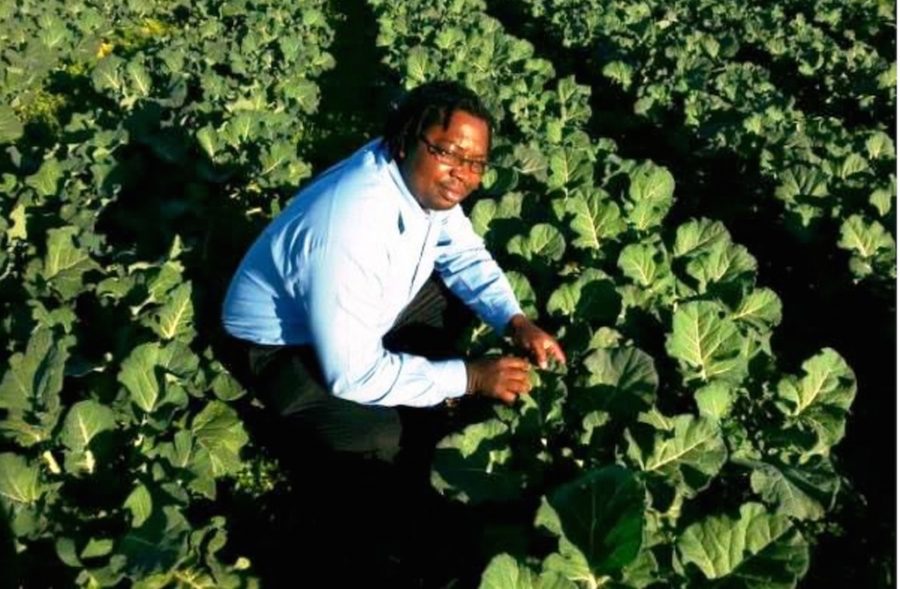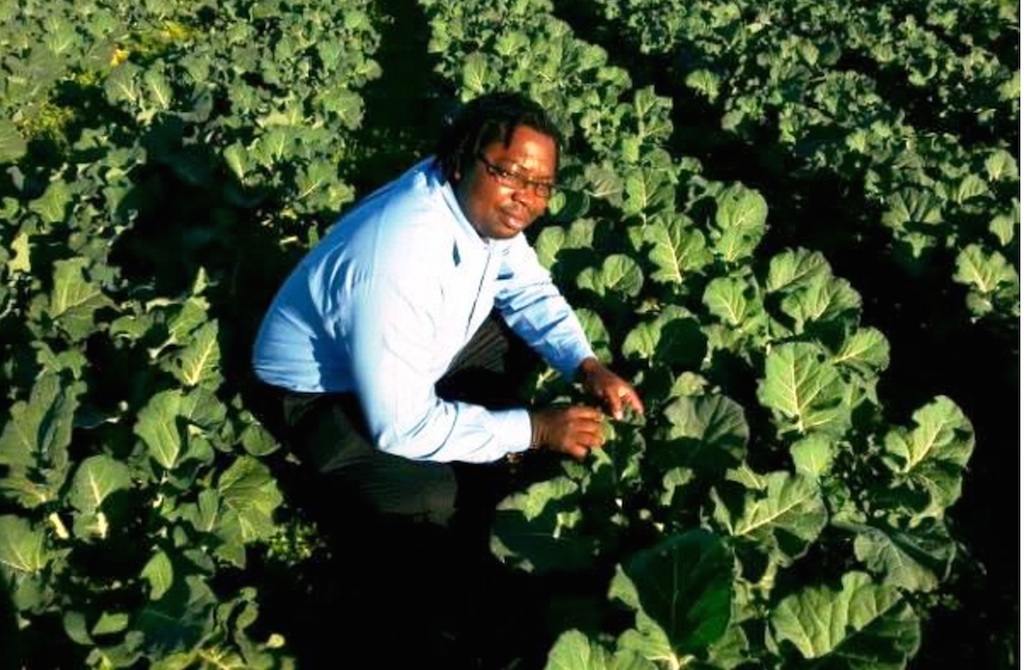
Mbeki Praises Zim Farmers in Malmesbury, Except Story Was “Inaccurate”
Earlier this month we republished a story about five Zimbabwean teachers and academics who had taken an “abandoned” piece of farmland outside Malmesbury and made a success of it, a story that reached many people, even ex-president Thabo Mbeki, who, in a widely viewed speech, praised it as an example of how more focussed on the […]

Earlier this month we republished a story about five Zimbabwean teachers and academics who had taken an “abandoned” piece of farmland outside Malmesbury and made a success of it, a story that reached many people, even ex-president Thabo Mbeki, who, in a widely viewed speech, praised it as an example of how more focussed on the land Zimbabwean farmers are.
Turns out, however, that the original story was not exactly the way it happened.

In an article last week, Groundup.org said it based the original story on an interview with one of the five, Albert Zinhanga, who was also one of the winners of the recent Zimbabwean Excellence Awards. It said that Zinhanga had said many of the same things he told them on a Youtube interview (see below).
The story Zinhanga told them, they found out afterward, was full of “inaccuracies and unverifiable information” – including that there had been a loss of over R1 million on the land before the five took over. Zinhanga also had told them that the owners of the farm did not want to talk to the media.
Mbeki, meanwhile, retold the story to an audience about a week ago, and the video on Avimedia has been viewed over 135,000 times. It is unclear where he made the speech but it was clearly about land reform and he was comparing the attitude of Zimbabweans and South Africans. There was also lots of embellishment, with Mbeki even adding that the farmers had won a best farmer of the Western Cape award – which they did not.
Saying it was a “good story to tell”, he added: “It’s Zimbabweans. It’s not any South African that went to the farmer and said can I use your farm. But the Zimbabweans did. Because Zimbabweans have got a very different attitude to land.”
But Zinhanga’s detailing of events, it appears, were not exactly correct. In its followup article, where it also apologised, Groundup said, “Marie Combrinck, wife of Koos Hoffman, owner of the Môreson farm, says the land on which Zinhanga and his three friends were farming was never abandoned and that she and her husband had been growing lupins for animal feed on the land.”
“Combrinck said that at the time the Zimbabwean academics approached her and her husband in 2014, the lupins had been cleared as it was a winter crop.
“Her husband allowed Zinhanga and his fellow academics to farm the land, permitting them to farm for a year free so that they did not get into debt. It was agreed that the N7 farmers would begin to pay rent after a year.
“She insisted that there was never a problem with the pH of the soil as Zinhanga had told GroundUp.”
There had also been confusion between N7 Meat and the farm Môreson. Zinhanga apparently told Groundup that there had been “misunderstandings” and he accepted the Combrincks’ version of events.
Here is Groundup’s follow-up story:
Award-winning Zimbabwean N7 farmers’ version of events disputed
In a widely read article on GroundUp last week, we featured a group of Zimbabweans who had turned their hand to farming in Malmesbury and had won an award for their entrepreneurship at the Zimbabwean Excellence Awards. We based the article on an interview conducted with Albert Zinhanga, one of the winners.
What he told GroundUp corresponded accurately with what he also told to camera for the Zimbabwean Excellence awards, posted on YouTube.
When we wrote the original story, our reporter tried to contact the farm owners who own the land farmed by the N7 farmers (as the Zimbabweans call themselves). Zinhanga told our reporter that the owners said they did not want to speak to the media.
Further investigation after publishing revealed inaccuracies and unverifiable information in Zinhanga’s version of events about how the farming enterprise came about.
Marie Combrinck, wife of Koos Hoffman, owner of the Môreson farm, says the land on which Zinhanga and his three friends were farming was never abandoned and that she and her husband had been growing lupins for animal feed on the land.
Combrinck said that at the time the Zimbabwean academics approached her and her husband in 2014, the lupins had been cleared as it was a winter crop.
Her husband allowed Zinhanga and his fellow academics to farm the land, permitting them to farm for a year free so that they did not get into debt. It was agreed that the N7 farmers would begin to pay rent after a year.
She insisted that there was never a problem with the pH of the soil as Zinhanga had told GroundUp.
She says his claim that the land was not profitable is not correct and there was never a loss of over R1 million on the land as Zinhanga clearly stated to our reporter and in the video.
GroundUp visited the farm and contacted Zinhanga. He said that there had been a “misunderstanding” about the R1 million in losses and that the figure had come from the amount of money that the previous owner had invested in irrigation on the land.
He said that he and his partners believed that the land was unused as it was empty when they began farming.
He sticks to much of his story, saying it is what they were told by Hoffman when they were originally taken around the farm. Despite this, he said that he accepts Combrinck’s version. He insists that Hoffman and his wife were very helpful and generous. He said he was sorry for “any errors caused”. Zinhanga said that “it is very rare for a white farmer to give a black farmer land for free”.
The N7 farmers also confused N7 Meat with Môreson farm, where it operates. Michael Agnew runs N7 Meat and alerted GroundUp to the inaccuracies. Agnew’s father used to own Môreson, but sold it to the Hoffmans.
GroundUp regrets that it didn’t independently check Zinhanga’s version of events.